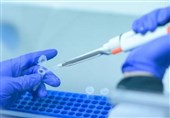New Technique Revolutionizes Embryo Screening for Genetic Abnormalities
TEHRAN (Tasnim) – Researchers from Karolinska Institutet and Maastricht University have developed a groundbreaking method that allows for the comprehensive screening of embryos for all known genetic abnormalities with a single, more accurate, and faster test.
A team of scientists from Karolinska Institutet and Maastricht University has introduced the new technique that enhances the screening process of embryos for genetic abnormalities.
This advancement offers a more precise and quicker method than existing technologies, improving the chances of healthy childbirth for parents at risk of inherited conditions.
Pre-implantation genetic testing (PGT), also known as embryo selection, is a process in which embryos are screened for known genetic abnormalities during in vitro fertilization (IVF) treatments.
Prospective parents, particularly those at risk of having a child with a serious hereditary condition or who have experienced repeated miscarriages due to chromosomal abnormalities, may choose this option.
The research, led by geneticist Masoud Zamani Esteki, an affiliated researcher at Karolinska Institutet's Department of Clinical Science, Intervention and Technology, alongside colleagues at Maastricht UMC+, has resulted in a technique capable of analyzing the entire genome—all genes and chromosomes—in a single test.
This allows for faster and more effective detection of hereditary conditions.
Previously, detecting genetic abnormalities required multiple tests, each tailored to specific types of conditions, leading to lengthy and complicated procedures.
The new method consolidates these into a single, comprehensive test, streamlining the preliminary procedures and significantly reducing the time required.
Esteki noted, "With the available tests, we could only examine specific parts of the genetic information in an embryo.
This new technique maps all the genetic information in an embryo, which means we do not need to develop a PGT test for each individual condition."
He added that this method could also detect specific genetic abnormalities, such as those in mitochondrial DNA, like MELAS syndrome.
The new technique not only offers a more complete analysis but is also more accurate, identifying even the smallest errors in genetic material.
Esteki explained, "In the past, prospective parents had to wait a long time for the test to develop, and some embryos could not be transferred because the PGT result was unclear. Now we can determine this quickly and with more than 99% certainty, which means that more embryos can be considered for transfer."
This technique is currently in use at Maastricht UMC+, the only PGT center in the Netherlands, with expectations that PGT centers in other countries will adopt the method.
However, as the technology evolves, it raises new ethical questions.
The ability to examine the entire genetic material opens possibilities for better determining which embryos have the best chance of a successful pregnancy and healthy birth.
Esteki highlighted that this could reduce the number of placement procedures needed but emphasized the need for ethical guidelines.
He stated, "There should be an agreement on which unexpected abnormalities we have solid evidence, such that we do not select embryos for transfer and which can be considered normal genetic variation. So both ethical consideration and new data are required to define these guidelines in the clinic."






